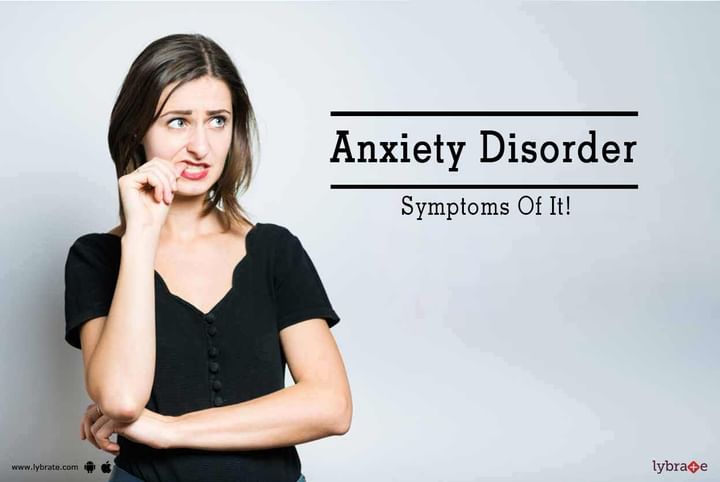Anxiety Disorder - Symptoms Of It!
A right amount of anxiety is good to keep you progressing on your goals and life; when it gets too high, things go helter-skelter. It is normal to get anxious and stressed at times. However, when the stress starts affecting your lifestyle, it might be an anxiety disorder. The irony is, more often, you may not know when it exceeds the limits that your body and mind can bear.
Read on to know a few symptoms when your anxiety has turned into disorder.
- Worrying excessively: If you tend to worry about normal matters to such an extent that it overrules your life and are also experiencing tiredness, then it is a signal of undue stress. In short, if your emotions are causing a great deal of discomfort, you are ailing from anxiety problems.
- Irregular sleep patterns: If you are unable to fall or stay asleep, it could be normal anxiety. However, if you find yourself being awake for prolonged durations at night and it is accompanied by uneasiness, it is advisable to get some help for recuperating from anxiety disorders.
- Strained muscles: Your muscles are tensed if you perceive that you are clenching your jaws or closing your fists. Also, they are symptoms signalling that you have an anxiety disorder.
- Indigestion: According to research studies, digestion problems such as Irritable Bowel Syndrome (IBS) and anxiety are correlated. Due to psychological stress, your gut is adversely affected. Moreover, if you are having digestive problems, it causes anxiety. Some symptoms of IBS include flatulence, bowel-related problems, cramps, stomach pain and bloating.
- Breathing issues: If a person suffers from respiratory troubles such as shortness of breath or rapid breathing (hyperventilation), they should go for a diagnosis to ascertain whether they have an anxiety disorder. Also, they must consult the doctors on the treatment course. It is also important to adhere to the instructions of the medical experts for a quick recovery.
- Other symptoms: Some other symptoms of anxiety disorders include trembling unwarranted self-doubt, compulsive behavioral patterns, being obsessed with perfectionism, having disturbing flashbacks, heightened heart rate, nausea, burning sensation on the skin, dizziness, tingling, numbness, difficulty in concentrating, sweating, urge to urinate frequently, heart-linked palpitations, and irritability.
On a concluding note, it should be noted that if you are experiencing stress, there are various ways of tackling your problem. Seeking the help of a counsellor is an option. Furthermore, you can engage in relaxation and deep breathing techniques for easing the tension in the body. You can start with low-impact exercises such as swimming, gardening, walking, or jogging. Gradually, you can progress to high-impact workouts. These methods are effective for your overall well-being. Also, they can thwart depression because of the release of the ‘feel-good’ hormones known as endorphins.



+1.svg)
